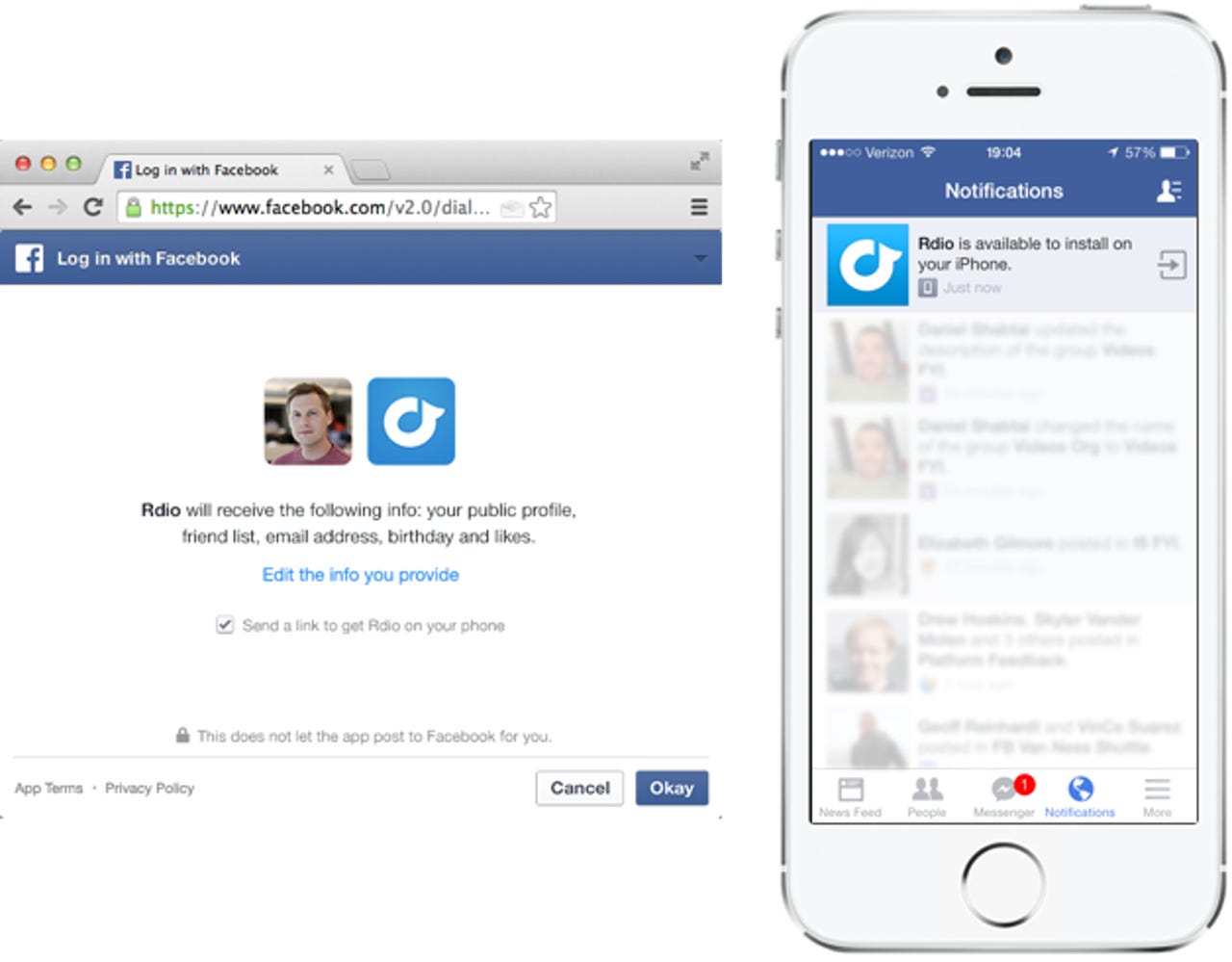Facebook dials back on third-party app shares


Facebook appears to be waking up to (or at least warming up to) a more user-friendly opt-in approach to privacy.
More about Facebook's infrastructure:
The Menlo Park, Calif.-based company announced on Tuesday that it would be changing up how third-party apps automatically share user actions to the News Feed "without explicit action."
Facebook reflected in the announcement that it "heard that people often feel surprised or confused by stories that are shared without taking an explicit action," which might be a bit of an understatement.
Nevertheless, to calm users' nerves just a little, the world's largest social network pledged it would be dialing back on auto-shares, promising to prioritize content that users actively chose to share on the News Feed.
Peter Yang from Facebook's product marketing team remarked in a blog post that these auto-shares, or "implicitly shared stories," have actually dropped significantly in the last year, suggesting that the problem has auto-corrected itself somewhat, to say the least.
But Facebook doesn't want to alienate third-party app developers and the brands they work for, and Yang outlined a number of alternative methods for ensuring that third-party content finds its way into the stream.
Being at the forefront of Facebook's revenue and user growth strategies, Yang highlighted a few mobile approaches, as demonstrated in the screenshot above:
Send to Mobile gives people a shortcut to install your mobile app when they log in with Facebook to your website. For example, when people log in with Facebook to Rdio on the web, Send to Mobile will display a notification in a person's Facebook mobile app to download and install Rdio. Best of all, once you've upgraded to the new Facebook Login, Send to Mobile works automatically without any additional effort.
Additional options for third-party publishers include the new Like button (headed to mobile apps after being unveiled at F8 last month) as well as actively marking pieces of content to be explicitly shared during the Open Graph submission process.
Image via Facebook